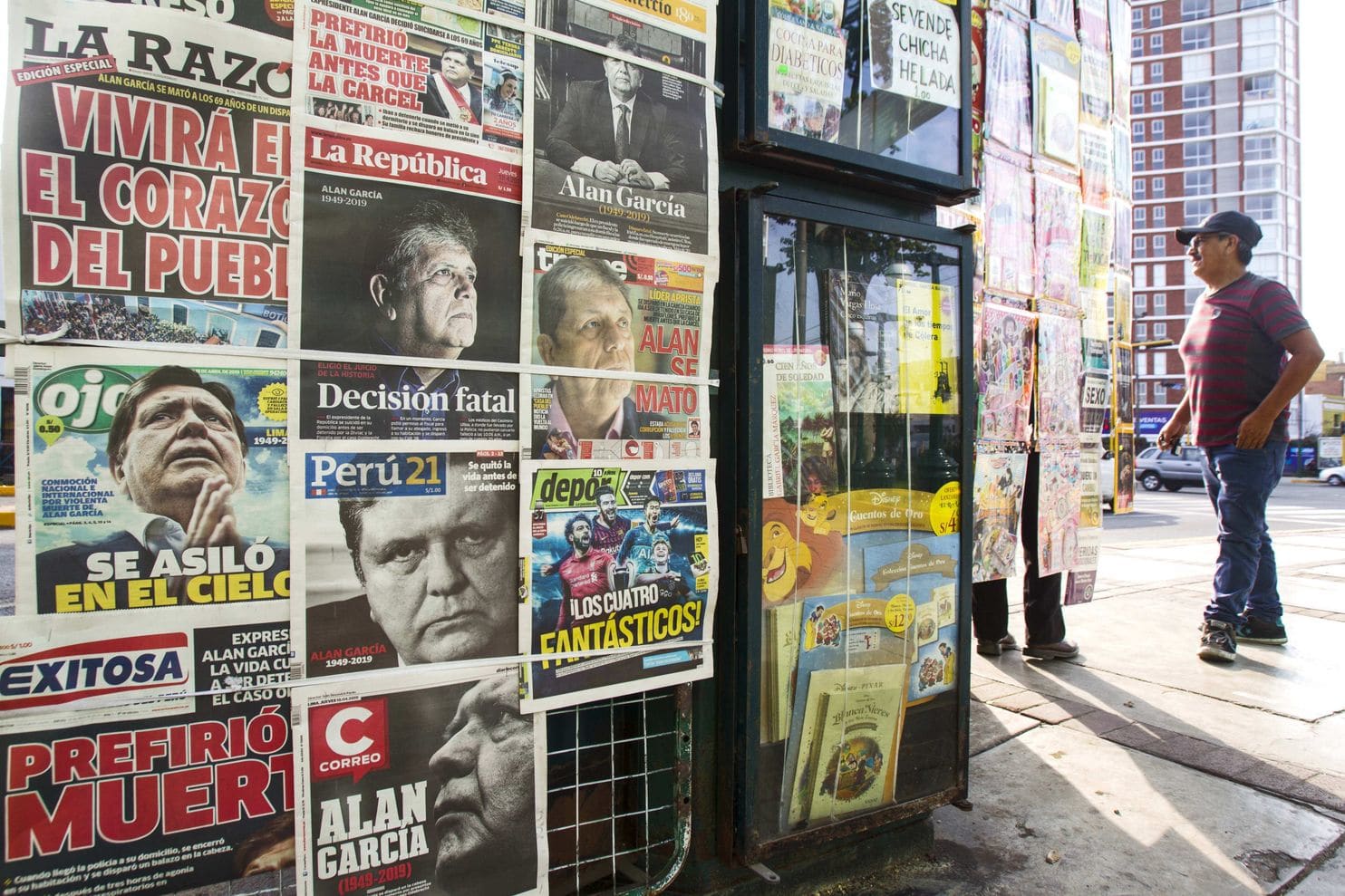As prosecutors and police officers explained they had an arrest warrant, the former president excused himself to go call his lawyer. He stepped into his bedroom. A single gunshot rang out.Hours later, after an unsuccessful operation to try to save him, he was pronounced dead.
Alan García, the two-time president of Peru (1985-1990; 2006-2011), explained in a suicide note that he preferred to take his own life rather than face the humiliation of an arrest on corruption charges. (If you hadn’t heard of it, it’s because his suicide coincided with the publication of the Mueller report, burying the story in U.S. media.)
García’s death marks the high (or, rather, low) watermark for a massive corruption scandal that has rocked Peru’s political system to its foundation, and has seen nearly all its living ex-presidents under investigation for corruption.
This makes Peru sound like a basket case of corruption, but, paradoxically, the opposite may be true.
There’s reason to think Peru isn’t any more corrupt than any of its neighbors. The difference is that Peruvian prosecutors and courts have proved to be more aggressive and independent in investigating corruption.
We know this is the case because, as it turns out, much of the corruption roiling countries such as Peru isn’t homegrown. Instead, it’s imported from Brazil, where a giant engineering and construction firm, Odebrecht, built an empire by paying bribes to the tune of $800 million to a genuinely frightening array of political leaders all around the region.
Though some level of bribery has long been common in the world of big-ticket infrastructure project licensing, Odebrecht took matters to an entirely new scale. It employed an entire corporate department to, in effect, optimize the company’s bribe-paying. Dozens of employees dealt with nothing else. Odebrecht did to bribery what Henry Ford did to car manufacturing: It disrupted what had been an organic practice and blew it up to industrial scale.
Source: Latin America is fed up with corruption. Leaders need to face the reckoning. – The Washington Post


